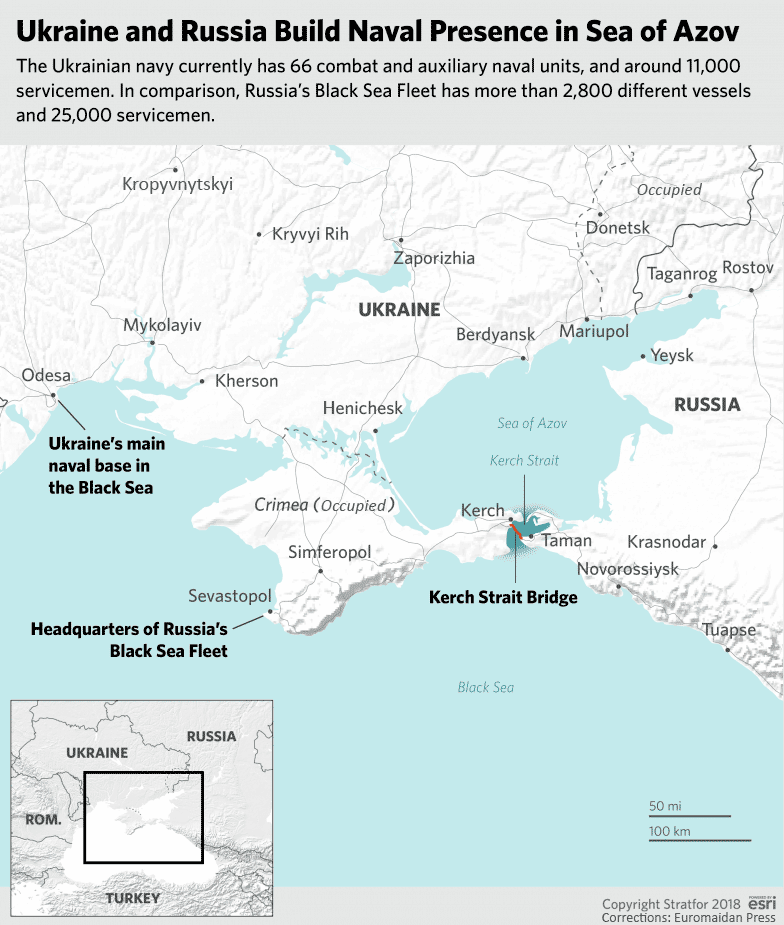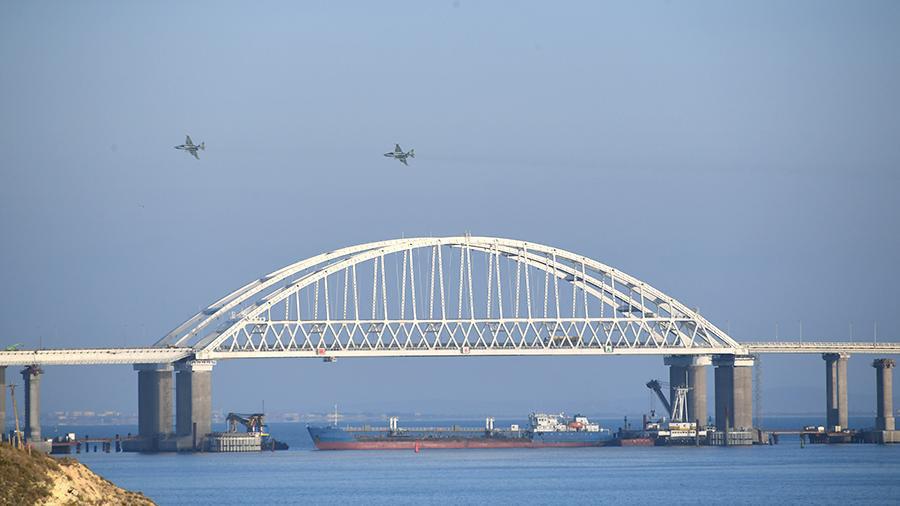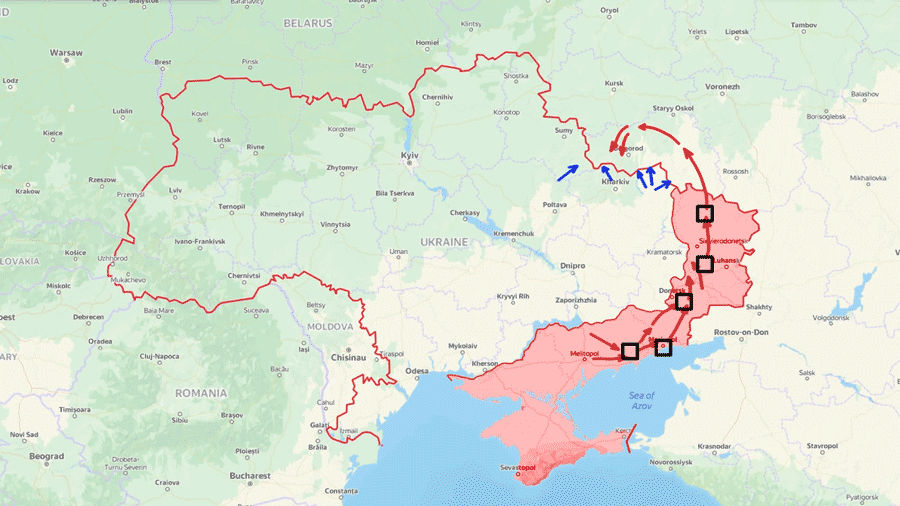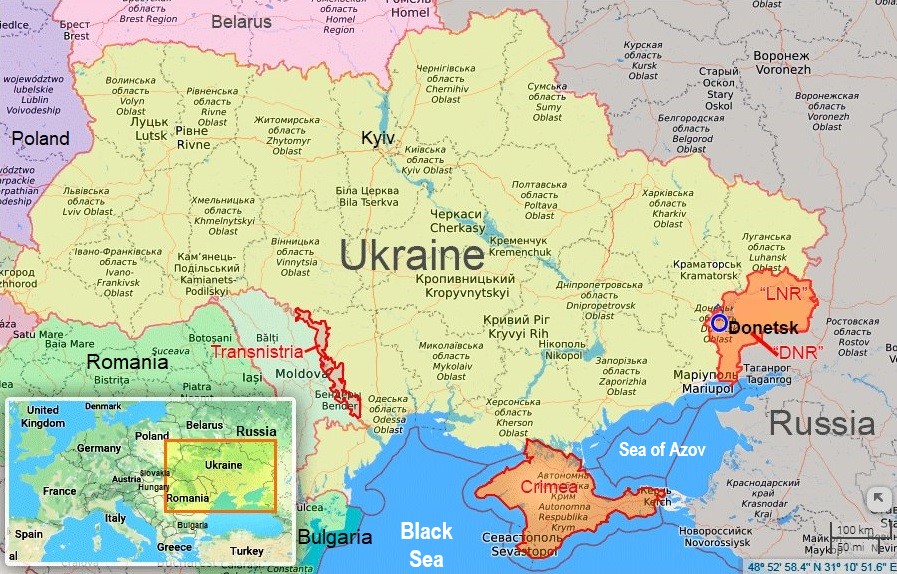Moscow’s justification for what it has done is that it is planning naval exercises in the region and wants to avoid any accidental clashes. And the Russian foreign ministry has declared that, therefore, this move in no way represents either a violation of international law or a threat to Ukraine and its partners (RIA Novosti, April 15). But as the Ukrainian foreign ministry has pointed out, “such actions by the Russian Federation are the latest attempt to violate the norms and principles of international law” because they “usurp the sovereign rights of Ukraine as a littoral state since Ukraine has rights to regulate shipping in these areas of the Black Sea” (Kmu.gov.ua, April 15).
Not surprisingly, Kyiv has called on the international community to support it against this latest Russian application of pressure, especially as this action is clearly a violation of international law. European Union officials have expressed “concern,” but because they have done so in the wake of news that Western naval vessels were on their way to Black Sea, their words are less clear cut as a condemnation of Moscow than what some in Ukraine would like to hear (Ec.europa.eu, RFI, April 16).
Neither Ukraine’s protests nor European expressions of concern, however, appear to have restrained Moscow. Indeed, there have already been cases in the past week in which Russian ships have blocked Ukrainian ships on waters where the two countries supposedly share control (Facebook.com/navy.mil.gov.ua, April 15). At the same time, Moscow has transferred 15 warships from its Caspian Flotilla to the Sea of Azov, an action that not only gives the Russian naval forces arrayed there an expanded landing capability but gives Federal Security Service (FSB) Border Guard vessels that had patrolled that body of water the opportunity to move into the Black Sea proper and be available for actions against Ukraine elsewhere (see EDM, April 13; Windowoneurasia2.blogspot.com, April 14; Vestnik, April 19).
As a result, some Russian commentators are already boldly talking about Russian “control” of the Sea of Azov. Certain Russian analysts even imply that Moscow’s latest moves are an entirely reasonable response to Türkiye’s construction of a canal that, they assert, Ankara has decided will not be subject to the Montreux Conventions and, thus, will allow more Western naval vessels to enter the Black Sea and threaten Russia (APN, April 15; Echo Russia, April 14; Svobodnaya Pressa, April 20; Profile, April 19). That alarmist interpretation of the planned Istanbul Canal remains hotly disputed (see Jamestown.org, April 14).
Trending Now
In any case, this is not the first time the Sea of Azov has become a cockpit of conflict between Russia and Ukraine. In Soviet times, it was viewed as that country’s internal body of water not subject to international law; but when the Union of Soviet Socialist Republics (USSR) disintegrated, both Kyiv and Moscow made claims to it. That led to a 2003 agreement, which, in the opinion of some analysts, left the sea in a legal limbo and is, today, prompting some in Ukraine to argue that Kyiv should rely not on that accord but on the United Nations Convention on the Law of the Sea (UNCLOS) agreement both Russia and Ukraine have ratified (Versia, August 19, 2018). Were Kyiv to make such a claim in an international arbitrage court, Moscow would certainly respond by suggesting that the Ukrainian side was violating its own 2003 agreement, a likelihood that may have restrained some in the West from expressing more support (Gordon, July 11, 2018; Krym Realii, September 3, 2018).
At various times since it occupied Ukraine’s Crimean Peninsula in 2014, Russia has sought to take full control of the Sea of Azov or at least put itself in a position to block Ukrainian shipping or the entrance of any third-party vessels into that body of water. In the summer of 2018, for example, as it has now done again, Russia introduced vessels from its Caspian Flotilla into the Sea of Azov (see EDM, May 31, 2018; Nezavisimaya Gazeta, June 5, 2018). After doing so, Moscow stopped 148 ships supposedly for “inspection” and even attacked three small Ukrainian naval vessels trying to pass through the Kerch Strait (see EDM, March 20, 2019; Interfax, July 16, 2018). But in the months that followed, Russia backed away from such offensive and illegal actions and withdrew its Caspian Flotilla ships back to their home area.
Over the next two years, Russia nonetheless continued to assert its power to control access to the Sea of Azov by carrying out inspections that delayed shipping to Ukrainian ports and discouraged international companies from using them. Moreover, Moscow at various points declared expansive exclusion zones in the theater in the name of Russian military exercises (see EDM, January 23, 2020 and January 14, 2021). The current situation is especially worrisome for three main reasons.
- First, the Caspian Flotilla ships are back.
- Second, the FSB vessels that had been in the Sea of Azov are now acting in direct support of Russia’s Black Sea Fleet (Svobodnaya Pressa, April 19).
- And third, what Moscow is doing in the Sea of Azov could provide direct support to a land invasion.
As a result, these latest Russian actions in a body of water relatively few have focused on demand both greater attention and a tougher response from the West.
Read More:
- Russia violating international law by closing Kerch Straits to naval vessels until October, Kyiv says
- Moscow moving 15 warships from Caspian Sea to waters off Ukraine
- Russia’s strategy in the Sea of Azov: The Kerch Bridge, artificial shipping delays and continued harm to Ukraine
- New Ukrainian naval base ‘East’: A countermeasure against Russia’s hybrid strategies in the Sea of Azov?
- The Resolution of United Nations on the Azov Sea and the diplomatic defeat of Russia
- Russian aggression in the Azov Sea has been ongoing since May 2018
- Russian attack on Ukrainian ships: who has a right to do what in the Azov Sea
- Russia takes 24 prisoners of war after attacking Ukrainian ships in Azov, televises “confessions”





